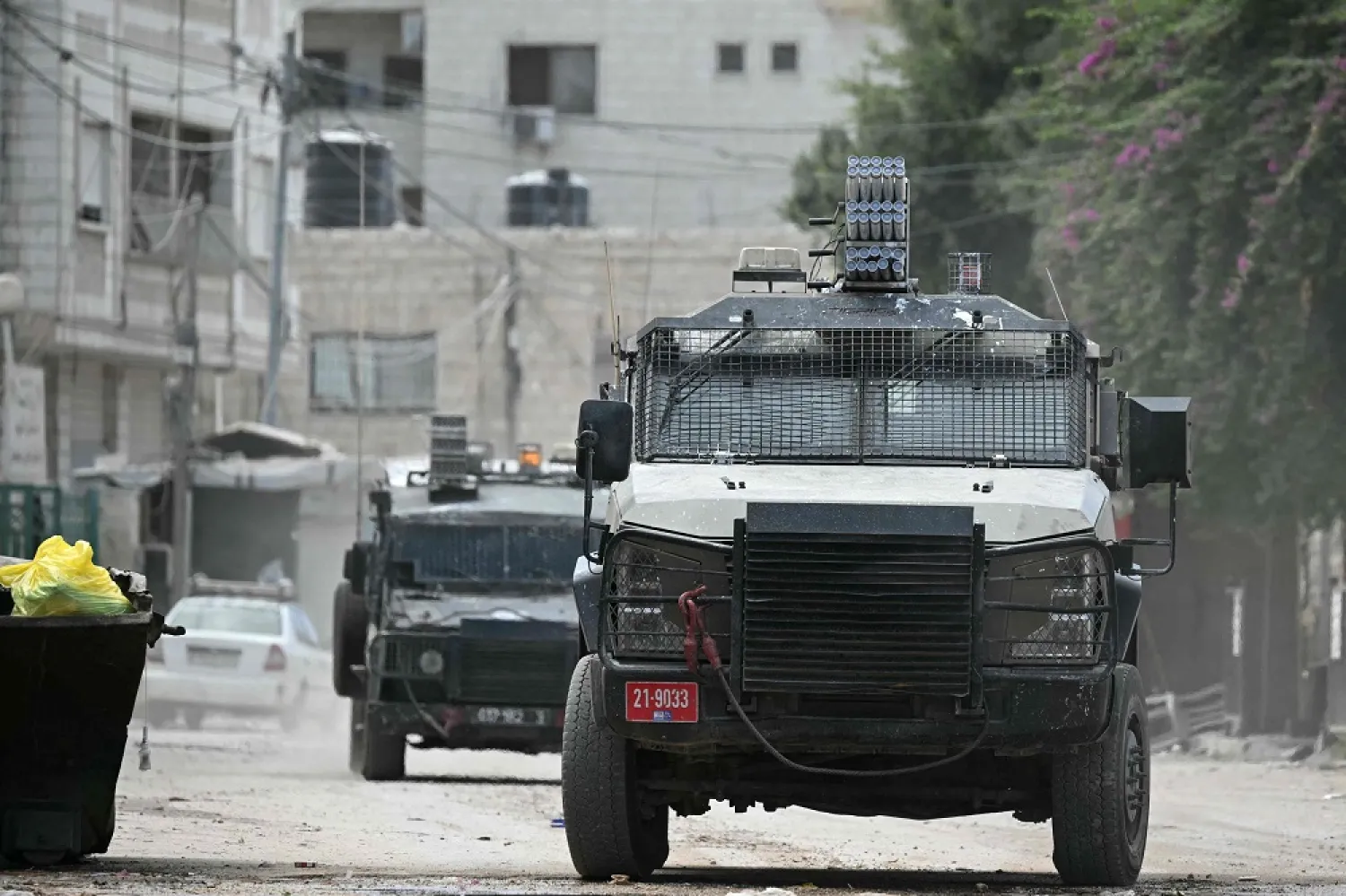Hundreds of Israeli troops backed by helicopters, drones and armored personnel carriers raided the flashpoint cities of Jenin and Tulkarm and other areas in the occupied West Bank on Wednesday, killing at least 10 Palestinians.
The assault, one of the largest seen in the West Bank for months, followed a series of smaller raids in the area over recent weeks as Israeli forces sought to crush groups of fighters from Palestinian armed groups.
With Israeli forces battling Hamas in the Gaza Strip and facing a serious escalation of tensions with Iranian-backed Hezbollah in southern Lebanon, Wednesday's operation underscored the multiple security threats Israel has been battling since the start of the Gaza war last year.
The armed wings of the Hamas, Islamic Jihad and Fatah factions said in separate statements their gunmen were detonating bombs against Israeli military vehicles in Jenin, Tulkarm and Far'a, a town in the Jordan Valley.
After the initial assault, the sounds of gunfire and explosions could be heard from Jenin's crowded refugee camp, a heavily built up township adjacent to the main urban district that has been a hotbed of militant activity for years.
Palestinian health authorities said at least 10 Palestinians had been killed in different areas of the West Bank by Israeli forces during the operation.
A short distance outside Jenin, blood soaked the ground next to a damaged car and an impact crater from a drone strike the Israeli military said had killed three militants.
The Palestinian health ministry said troops had surrounded Jenin's main hospital, blocking off access with earth mounds - a measure the military said was intended to prevent fighters seeking refuge.
A military spokesperson said Wednesday's operation followed a sharp rise in militant activity in recent months, with more than 150 attacks from Tulkarm and Jenin involving shooting or explosives over the past year.
He said the military assessed that there was an "immediate threat" to civilians but that the operation was part of a broad strategy aimed at thwarting attacks.
"This terror threat in this area is not new, it hasn't started yesterday and it's not going to end tomorrow," Lieutenant Colonel Nadav Shoshani told a media briefing.
Earlier, the military released the names of five Palestinians identified as militants who were killed in Tulkarm on Monday. Two were claimed by Hamas and three by Islamic Jihad.
'SOMETHING CAME DOWN FROM THE SKY'
As well as the major raids in Jenin and Tulkarm, two of the most volatile cities in the northern West Bank, the military said forces also raided Far'a near Tubas in the Jordan Valley, killing at least four people in a drone strike.
Masoud Naaja, the father of two young men killed in the attack, said he was giving water to some men who asked for a drink when he was wounded.
"In seconds, very fast, we felt like something came down on us from the sky and there was an explosion," he said. "When I put my hand on my chest, it was full of shrapnel and blood."
Clashes in the West Bank have escalated since the start of the Israel-Hamas war in Gaza. Israel, which says Iran provides weapons and support to the armed factions, has stepped up operations, while Jewish settlers have also launched frequent vigilante-style attacks on Palestinian communities.
Thousands of Palestinians have been arrested in raids and more than 660 - fighters and civilians - have been killed in the West Bank and East Jerusalem since the war in Gaza began nearly 11 months ago, according to Palestinian health ministry figures.
At least 30 Israelis have been killed in attacks in Jerusalem and the West Bank during the period, according to Israeli tallies.
The latest round of Israeli-Palestinian violence began on Oct. 7 after Hamas fighters stormed from Gaza into southern Israel, killing 1,200 and taking more than 250 hostages, according to Israeli figures.
Israel's Gaza campaign has since demolished swathes of the enclave, displaced nearly all its 2.3 million people multiple times, given rise to deadly hunger and disease and killed more than 40,500 people, Palestinian health officials say.
Internationally mediated talks to end the conflict continue, with Hamas and Israel trading blame for a lack of progress, and the US expressing optimism that a ceasefire can be reached.









